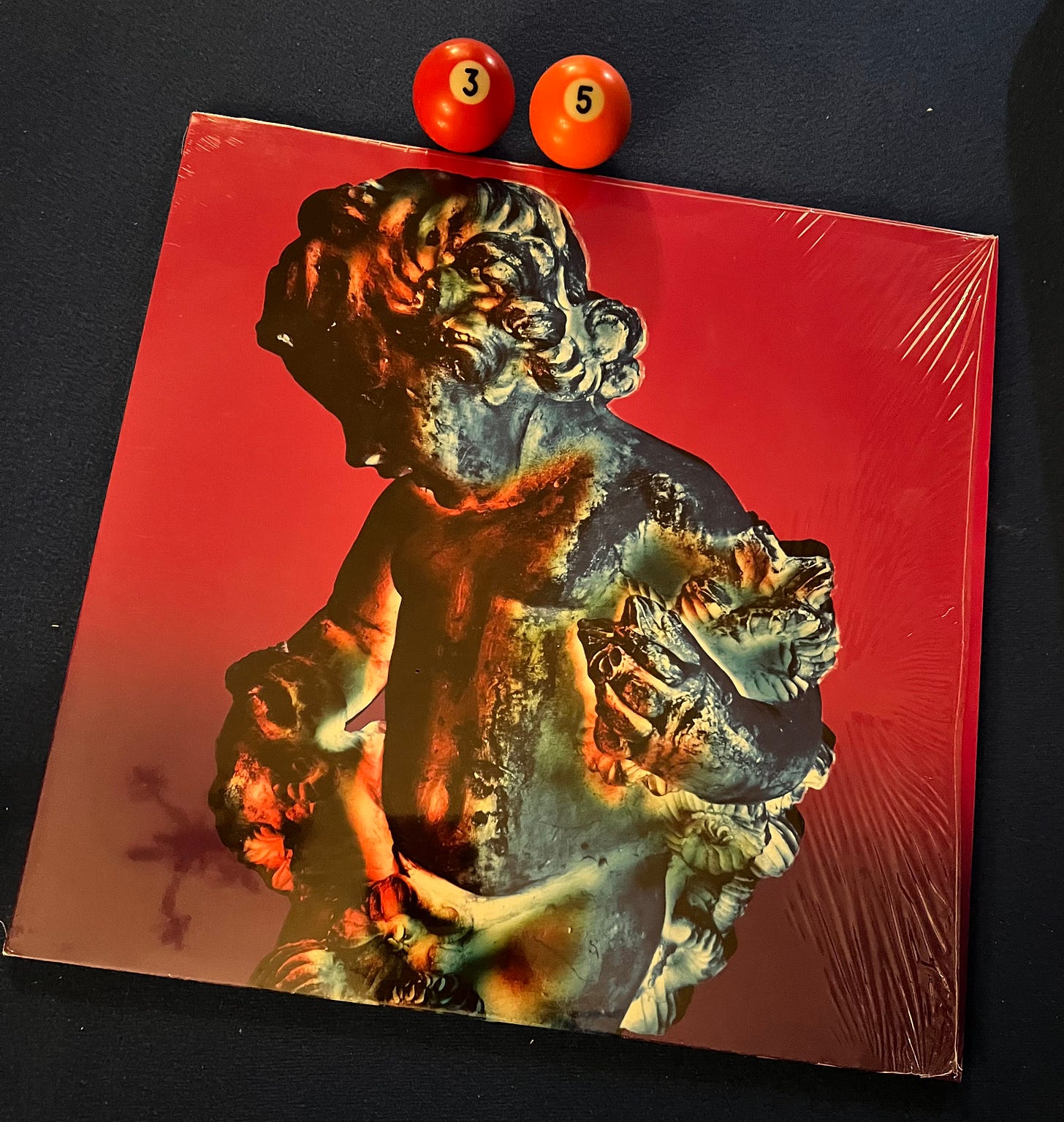New Order - Technique is 35 years old
The Manc. scallywags high-tide 1989 album has a birthday.
This was first substacked - yes, it’s a verb now - a year ago when a) I had fewer subscribes (thank you all so much indeed) and b) the album was only 34 years old. So, here it is on a ‘significant’ birthday.
It seems to me that the purpose of seminal albums is to make people feel old. When people mention seminal albums what they really mean is music arriving at landmark moments in their own lives. For some folk Adam Faith’s I Survive is pivotal because the cassette was stuck in the stereo of their first car. These are our teenage albums. The LPs we cried our bruised and clueless hearts out to. And it felt good, like an audition to the John Hughes film in our heads, as we posed in the mirror, poised for greater things; at least until we were called down for tea. It’s a nice notion, recalling songs playing on the radio at the birth of your child, but unless it was New Order’s Shellshock you don’t really. It’s the songs you played from the ages of 12 – 20 that really matter.
And hence, New Order’s Technique, just as it contributed to the Acid House explosion itself, it arrived at a seminal time in my life. It was released on 30 January 1989 by Factory Records, the time at which I was still recovering from the perfection of their Substance sort-of greatest hits album of re-recorded songs, 12” extended mixes and B-sides. Blue Monday will be forever etched on my brain because despite an army cadet hammering its beat with a metal-tipped marching stick onto my young head, I was hoping he’d stop so I might ask what the song was. To this day I find the vocal version an aberration.
It was before I’d engaged with New Order having been Joy Division, and the new album’s euphoria of frenetic synth stabs and house music sensibilities were an assured declaration of their sure-footing. Driven by Peter Hook’s leading bass the pulsating 2nd single Round and Round cracked the perfectly floating ball of 1987's True Faith over the boundary for a six. Technique is often referred to as their hedonistic summery album, but unless it was pouring with rain-streaked heartache in Ibiza where they sojourned to record it, it is not quite the party album its reputation suggests. It’s sunny, yet cloudy. They are from Manchester after all.
‘I don’t care how good the studio is, this one’s got a swimming pool. And a bar. With a bartender on 24 hours…’ Bernard Sumner.
Choosing a studio because it has a bar and pool sounds sensible until it transpired the recording facilities were as whack as the band got whacked during their stay. The parties were so legendary that coach tours used to turn up with tourists. Anyone hoping to catch an insight into the recording of a future seminal album were disappointed unless they found drummer Stephen Morris dutifully avoiding sunburn by playing drum patterns in a dark room. It was all they returned to the UK with; that alongside hangovers and vague memories of the appropriately named Amnesia and Pacha, crashing cars and pool parties. . Matters weren’t helped by a studio geared towards heavy metal bands and that synthesisers had to be wedged through windows to get them in.
Morris’ rhythm tracks would provide the basis for the album when the relocated to Peter Gabriels’ Real World studio near Bath; Technique should really be called the Wiltshire album. Mind you, they brought Ibiza with them, shipping in Manchurians for a party in Gabriel’s absence. If you’re going to trash a pious self-righteous rock star’s state of the art gaff then Gabriel, who was away stroking his beard for Amnesty International, would reach higher on the list than he managed in the top 10 again. It might even have been the last thing Hook and Sumner agreed on.
‘It was nice, but we did fuck all. In a way it was quite good to waste our own money, doing something that took your mind off what was happening with Factory…’ Stephen Morris
Technique is far more guitar-based and lyrical than people might recall, with the wistful All the way, the languid Love Less (complete with coughing clearing of a throat intro and sounding like the Smiths) and Run all find Sumner's scratchy guitar jangle flirting with Hooky’s trademark strident melodic bass lines and Gillian Gilbert’s subdued keyboards underlying surprisingly coherent lyrics; something of a first. The nine tracks all thankfully continued the mystique of song titles having nothing to do with the lyrics.
Thus, despite the polished sheen and jostling between Hook’s rock direction versus Sumner’s eye on the dancefloor, it remained the kinked New Order of old. From the frenetic riffs and deep-voiced lead-single Fine Time declaring ‘You know I've met a lot of cool chicks/But I've never met a girl with all her own teeth’, to the sheep noises that never quite compete with the frogs in the Perfect Kiss. The incessant Round and Round showcasing Hooky’s bass strutting high in the mix, amidst Gilbert’s elegant electronics and the rat-tat of Morris' strafing drums. ‘The past doesn’t matter’. repeated infinitum was New Order shaking off Joy Division, even if half the album sounds more like the previous band than they realise. Its frantic hooks and elegant synth punches catching a zeitgeist that helped Technique to their only no.1 album; a surprising honour they share with Pet Shop Boys (1993’s Very).
It’s the dreamy exuberance of Vanishing point and Mr Disco that cement the album’s reputation as the pop/house classic that pointed the way for other Manchester, and indeed most rock bands of the period, to follow if they wished to remain relevant. It was the last time New Order would be pioneers, but what a flag to pin in the ground.
My book on writing - Idle Thoughts of an Idle Writer - is available at Amazon
https://www.amazon.co.uk/Idle-Thoughts-Writer-Reflections-creative/dp/B09157XCCG/ref=tmm_pap_swatch_0?_encoding=UTF8&qid=1697876270&sr=8-2





